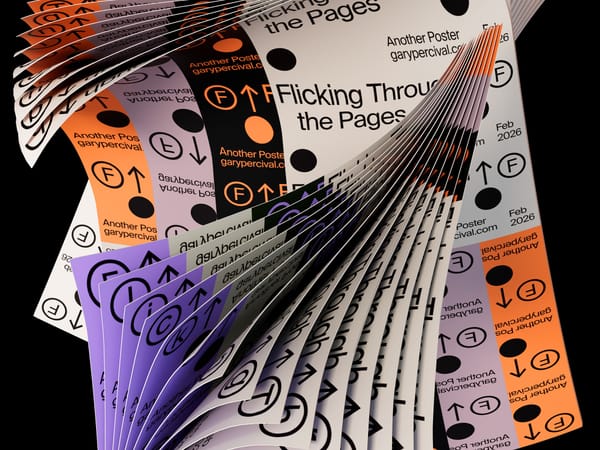Time Management: The Unsung Hero of Decision Making
Time management is a catalyst for superior decision-making.


We've all been there: a deadline looming, multiple tasks vying for attention, and the weight of decisions pressing down. In these moments, we often default to quick choices without much thought, just to keep things moving.
But have you ever stopped to consider the role time management plays in the quality of these decisions?
We often think of decision-making as happening in a vacuum, but our time management skills have a huge influence on the quality of the choices we make. In a world where we juggle numerous roles and responsibilities, understanding the intricate relationship between time management and decision-making can be a game-changer.
"Time management is a catalyst for superior decision-making."
Whether you're a freelancer managing client projects or someone trying to balance work and personal life, this insight could be the key to unlocking better, more informed decisions in every aspect of your life.
Time Management Leads to Less Stress and Clearer Thinking
Picture this: You're drowning in a sea of tasks, each with its own looming deadline. The clock is ticking, your anxiety levels are rising, and every decision feels like a shot in the dark. Sound familiar? It's a scenario many of us have found ourselves in, and it's often a direct result of poor time management.
When We're Overwhelmed and Rushed: In the throes of chaos, our minds are in overdrive, trying to process everything at once. This mental clutter is not conducive to clear thinking. When we're pressed for time and overwhelmed, we tend to resort to snap judgements and reactive decisions. These choices, made in haste, often lack the depth of consideration required for optimal outcomes. Instead of weighing the pros and cons or considering all the angles, we go with what seems right in the heat of the moment, which can lead to regrets later on.
"By managing time wisely, we create the conditions for our best thinking to emerge."
The Power of Effective Time Management: Now, imagine a different scenario. Your tasks are organised, your schedule is clear, and you've allocated specific times for specific activities. Suddenly, the weight of immediate pressure is lifted. Effective time management not only structures our day but also reduces the stress that comes with unpredictability. With fewer unexpected surprises and last-minute rushes, our mental bandwidth is no longer stretched thin.
Proactive Decision Making: When our minds are free from the constant stress of time crunches, we can think more clearly and objectively. This clarity allows us to be proactive rather than reactive. We can anticipate potential challenges, weigh our options carefully, and make decisions that are well-informed and well-thought-out. The result? Better choices that align more closely with our goals and values.
Mastering time management is more than just about being efficient; it's about creating an environment where our minds can function at their best. In this space, we're not just making decisions; we're making the right decisions.
Time Management Helps Identify Priorities
With our minds freed from stress, we can shift focus to prioritising the tasks that matter most. The ability to identify priorities is key to channelling energy into decisions that align with our overarching goals.
Spending Time Where It Matters: Good time management isn't just about getting more done in less time; it's about getting the right things done. When we manage our time effectively, we gain clarity on which tasks are most crucial to our objectives. This insight ensures that our energy and focus are channelled towards activities that have the most significant impact. Consequently, decisions related to these high-priority tasks are better informed and more aligned with our overarching goals.
The Pitfall of Low-Value Busywork: On the flip side, when we neglect to manage our time well, we often find ourselves swamped with tasks that, while they might seem urgent, aren't necessarily important. These low-value activities, often termed "busy work," can consume our day, leaving us with a false sense of productivity. The reality? We've expended our energy on tasks that don't move the needle much. This not only depletes our energy reserves but also leaves us with limited mental capacity to tackle significant decisions when they arise.
"Time management plays a pivotal role in guiding our decisions."
The Role of Time Management in Decision Making: By helping us discern between high-priority tasks and low-priority tasks, time management plays a pivotal role in guiding our decisions. When we're clear about where our priorities lie, decision-making becomes less about choosing between countless options and more about selecting the best course of action for our primary goals.
In essence, time management acts as a compass for decision-making by directing focus and revealing where our priorities truly lie. With this clarity, we can make empowered choices that align with our most valued objectives.
Time Management Creates Space for Analysis
With priorities identified, we can start allocating time for a deeper analysis of the decisions that matter most. This analysis leads to choices grounded in careful consideration rather than quick intuition.
The Necessity of Reflective Decision Making: Complex decisions demand a deep dive. They require us to step back, reflect on the available options, and weigh the pros and cons of each. This isn't about overthinking but rather about ensuring that our choices are grounded in careful consideration. Whether it's selecting a design theme for a client's campaign or choosing the right typography for a magazine cover, a reflective approach ensures that our decisions are well-informed and purposeful.
The Constraint of Time: However, this kind of in-depth analysis is time-consuming. In the hustle and bustle of daily tasks, finding the luxury of uninterrupted thought can seem like a distant dream. This is where poor time management can become our Achilles' heel. Without proper scheduling and prioritisation, our days can become a reactive cycle, leaving little to no room for contemplative decision-making.
"Effective time management creates the space for prudent analysis."
Carving Out Time for Thoughtful Analysis: Enter effective time management. By organising our tasks efficiently and allocating specific blocks of time for decision-making, we create pockets of calm in our otherwise hectic schedules. These intervals become our sanctuaries for thought, allowing us to delve deep into the nuances of our choices. Instead of making decisions on the fly, we grant ourselves the space to analyse, reflect, and then decide.
To sum it up, time management is more than just a productivity tool; it's an enabler of thoughtful decision-making. By ensuring we have dedicated time for analysis, it transforms our decision-making process from a reflexive act to a deliberate, calculated one.
Time Management Allows Consulting with Others
Leveraging time management to enable deeper analysis is crucial, but so is making time to consult others. Their diverse perspectives can greatly enrich our decisions.
The Collective Advantage: The saying "two heads are better than one" isn't just a cliché; it's a testament to the power of collective thinking. When faced with tough decisions, especially in the intricate realms of design and freelancing, seeking external input can offer fresh perspectives, highlight potential pitfalls, or even introduce completely new avenues of thought. This collaborative approach not only broadens our horizons but also ensures that our decisions are well-rounded and consider multiple viewpoints.
The Time Crunch: However, in the rush of deadlines and client meetings, finding the time to consult with others can seem daunting. If we're constantly firefighting and juggling tasks back-to-back, the mere thought of reaching out for advice can feel like an added burden.
"Having the time to consult means we're not making choices in isolation."
Making Time for Collective Wisdom: This is where efficient time management steps in. By meticulously planning our schedules and ensuring we allocate pockets of time for consultation, we pave the way for more inclusive decision-making. Whether it's a quick chat with a peer over coffee, a brainstorming session with a mentor, or a feedback round with a client, having the time to consult means we're not making choices in isolation. Instead, we're harnessing the collective intelligence of our network, ensuring our decisions are not just good, but great.
While individual prowess is a cornerstone of success, the collaborative spirit is its unsung hero. And to truly embrace this spirit, to make decisions that resonate with a broader audience and stand the test of time, we need effective time management as our ally.
Time Management Reduces Decision Fatigue
Between individual analysis and group consultation, our mental energy can run low. This is where time management comes in again—reducing decision fatigue so we can maintain sharpness.
Imagine this: you're on your tenth coffee of the day, sifting through design choices for a client's poster. Each decision feels heavier than the last, and by the evening, even deciding what to have for dinner feels like a monumental task. Sound familiar? This mental weariness is known as decision fatigue, and it's a real challenge that designers and freelancers face. But here's the good news: Effective time management can be our shield against it.
Understanding Decision Fatigue: Every decision, no matter how small, requires a slice of our mental energy. From selecting a colour palette to deciding the layout of a magazine cover, each choice chips away at our cognitive reserves. As the day progresses and these reserves deplete, our decision-making ability starts to wane. The result? Choices that are impulsive, lacklustre, or even downright poor.
"By reducing decision fatigue, we ensure each choice we make is backed by a refreshed and focused mind."
The Weight of Small Choices: It's not just the big decisions that drain us; the myriad of tiny, seemingly inconsequential choices we make throughout the day add up. Which email should I reply to first? Which font should I use for that headline? What music should I play while working? Each of these decisions, while minute on their own, collectively contributes to our decision fatigue.
Streamlining with Time Management: Enter the magic of time management. By structuring our day efficiently, we can significantly reduce the barrage of small decisions we face. Setting specific times for checking emails, designating blocks for focused work, and even planning breaks can eliminate a plethora of micro-decisions. This means that instead of being swamped by trivial choices, our mental energy is conserved for the big, impactful decisions—the ones that truly shape our work and define our success.
In essence, time management isn't just about getting more done; it's about making every decision count. By reducing decision fatigue, we ensure that each choice we make is backed by a refreshed and focused mind, ready to tackle the complexities of the design world with gusto.
Conclusion
Time is an intricate tapestry that weaves through every facet of our lives, especially in the realm of decision-making. As designers, freelancers, and creatives, the choices we make shape our work, our relationships, and ultimately, our success. And central to the quality of these choices is our relationship with time.
The Direct Link: Time management is more than just a productivity tool; it's a catalyst for superior decision-making. When we harness time effectively, we unlock a world where decisions are not made in haste or under duress but with clarity, precision, and purpose. By reducing stress, allowing space for analysis, prioritising tasks, and minimising decision fatigue, time management ensures that every choice we make is thoughtful, informed, and impactful.
Mastering Time, Mastering Decisions: The journey to impeccable decision-making is twofold. While understanding the nuances of each choice is paramount, it's equally vital to master the art of time management. Because when we control our time, we control the canvas upon which our decisions are painted, allowing us to craft masterpieces that resonate and inspire.
A Parting Thought: So, the next time you're faced with a crucial decision, pause for a moment. Before diving into the pros and cons of each option, reflect on your time management habits. Are they empowering your choices or hindering them? Remember, in the grand theatre of decision-making, time isn't just a spectator; it's the director guiding the play.
👇 Click Below to Share! 👇



